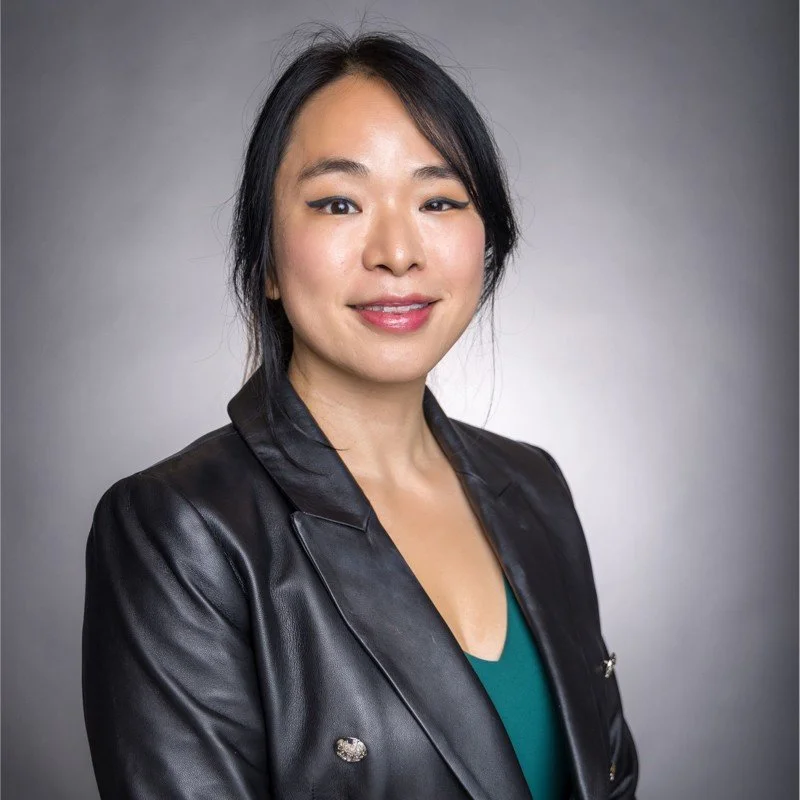
Equity and Access in Algorithms,
Mechanisms, and Optimization
our mission statement
To build a research community that places the perspectives and interests of marginalized groups at the foundation of algorithmic and resource allocation systems.
EAAMO was founded in 2016 as Mechanism Design for Social Good (MD4SG). Since then, EAAMO organizes interdisciplinary year-round working groups, community events, and since 2021, the annual Association for Computing Machinery (ACM) EAAMO conference. The EAAMO community has 3,000+ members from 150 institutions and 50 countries. Currently, EAAMO Directors are made up of researchers from six continents.
Our Goals
Build Community: To build a community with diverse perspectives around technical systems — interdisciplinary researchers, practitioners, and individuals with lived experiences — to identify and tackle under-resourced areas and inaccessibility.
How do we do this? EAAMO Bridges (formerly MD4SG Working Groups) are semester-long, guided biweekly meetings to structure newly formed networks and develop shared interests into new research, implementation, and advocacy projects. The built-in community of EAAMO Bridges makes our annual ACM EAAMO Conference unique in its pre-conference outreach and post-conference impact.
Bridge Research and Practice: To harness mathematical and computational tools towards improving equity and access in the real-world.
How do we do this? Since 2017, we have organized tutorials at leading conferences (FAccT, EC, WINE, and more) on deployment-research connection, developing interdisciplinary research, and on integrating the perspective of marginalized groups in computational and mathematical fields.
Prioritize Outreach: To nurture inclusive spaces where historically marginalized communities are empowered to become partners in these conversations.
How do we do this? Our Summer of Science program pairs indigenous students in Mexico with EAAMO researchers to prepare research proposals aimed at using STEM to improve their local communities. The students then present their research as posters in the annual EAAMO conferences and further develop them in our working groups. Our undergraduate outreach through Harvard ReCompute resulted in an EAAMO reading club and EAAMO Communications internships for undergraduates.
Innovate Infrastructure: To identify systemic gaps between research and deployment of algorithmic policies such as the differences in incentives, funding model, and human capital; and explore creative ways to bridge the gap.
How do we do this? Our Faculty Network programming focuses on helping junior faculty start, sustain, and be fairly evaluated for interdisciplinary and community-engaged collaborations. Similarly, our Doctoral Consortium helps guide computational and mathematical PhD students towards engaged, ethical work in non-academic pathways as well as traditional academic tracks. EAAMO Conference Proceedings (in the ACM Digital Library) provide publication opportunities for work that advances our mission that may not otherwise fit in other publication venues.
Why Do We Do This?
To ameliorate power imbalances: The nature of academic work and identities of those who undertake research may result in algorithmic and resource allocation systems that do not integrate the perspective of people who experience them; to counter this we must intentionally create alternative communities for research production.
To help define equity and expand access: Concepts of equity and access can be hard to evaluate and change. Computation and mathematical tools are powerful tools to precisely define these concepts, measure how they are operationalized in systems, and redirect resources to improve outcomes.
To balance rigor, inclusion and operational feasibility in technical discussion: Traditional computational and mathematical tools are inadequate to capture the perspectives of marginalized groups and can also be exclusionary. It is therefore crucial to incorporate the social and humanistic sciences as well as practice-oriented fields.
To build a long-term grassroots movement: All EAAMO members — regardless of institutional affiliation, geography, or educational background — have an opportunity to have a voice in shaping research in a sustained way through EAAMO’s focus on intentional, patient community building and creative pooling of resources and expertise.
History
In 2016, Rediet Abebe and Kira Goldner started a small reading group to discuss social applications of mechanism design—a mathematical research field that analyzes how to design systems for participants who have private information and may act strategically in their self-interest. Popular examples of mechanism design include designing the rules of auctions and designing how students get matched to schools. Rediet and Kira called their group Mechanism Design for Social Good (MD4SG). Irene Lo and Ana-Andreea Stoica joined the organizing team and the group expanded quickly: by 2018, MD4SG included five more reading groups on a range of topics including healthcare, environment and climate, and online labor markets,
MD4SG hosted their first workshop in 2017 in conjunction with the Economics and Computation conference (EC). The workshop included papers and invited talks that use mechanism design in a range of applications, including affordable housing, education, and health insurance. MD4SG held three more workshops in conjunction with EC and also ran tutorials in conjunction with the conferences COMPASS, FAccT, and WINE.
The workshops evolved into the ACM Conference on Equity and Access in Algorithms, Mechanisms and Optimization (EAAMO), the first of which was held online in 2021. The EAAMO conference provided a venue to publish the type of multidisciplinary research that often emerged from the MD4SG working groups. The first in-person EAAMO conference was held in 2022 at George Mason University, just outside Washington D.C.
In 2024, the activities of MD4SG and the EAAMO conference were combined under the EAAMO banner. By this time, the scope of MD4SG had grown far beyond the initial reading group and the name EAAMO was a more accurate reflection of the community's activities. To recognise the core role that the MD4SG working groups played to bridge research and practice, the working groups became EAAMO Bridges. With support from Cornell Tech's PiTech (Public Interest Technology) initiative, Sera Linardi has been appointed the inaugural executive director of EAAMO, focusing on creating a sustainable future for the organization..
Organizers
-

Mackenzie Jorgensen
Director of Working Groups
-

Edwin Lock
Director of Partnership (Europe)
-

Francisco J. Marmolejo Cossio
Director of Partnerships (Latin America)
-

Matthew Olckers
Director of Partnership (Africa)
-

Sandro Radovanović
Director of Operations
-

Ana-Andreea Stoica
Director of Finances
-

Rhea Tibrewala
Director of Communications
-

Felipe Verastegui-Grunewald
Colloquium Organizer
Working Group Organizers
-

Shubham Singh
Working Groups Lead
-

Matthew Olckers
Algorithms in Household Finance
-

Flor Ángel Pérez Sánchez
Equity and Justice for Indigenous Communities in the Americas
-

Yésica Gómez Hernández
Equity and Justice for Indigenous Communities in the Americas
-

Kenya Andrews
Decolonization of STEM Curriculum
-

Iván Higuera-Mendieta
Environment
-
Hannah Murray
Environment
-

Anushka Murthy
Environment
-

Samuel Taggart
Inequality
-

Serafina Kamp
Inequality
-

Ashley Khor
Living Labs with Practitioners
-
Gabriel Agostini
Urban Data Science and Equity
-

Matt Franchi
Urban Data Science and Equity
-

Jennah Gosciak
Urban Data Science and Equity
Team
-

Nikhil Garg
Faculty Network
-

Faidra Monachou
Faculty Network
-

Eric Sodomka
Development
-

Yaren Bilge Kaya
Development
-

Chinasa T. Okolo
Development
-

Alex DiChristofano
Incorporation
-

Juba Ziani
Doctoral Consortium
past leadership
-
Rediet Abebe, Co-founder, 2016-2022
Kira Goldner, Co-founder, 2016-2018
Wanyi Li, 2020-2022
Irene Lo, 2018-2021
Sera Linardi, Executive Director, 2024-2025
Charles Cui, 2022-2025
George Obaido, 2022-2025
Lily Xu, 2022-2025
-
Doaa Abu-Elyounes, Algorithms, Law, and Policy
Tejumade Afonja, Development
Abeba Birhane, Data Economies
Ali Alkatib, Data Economies and Data Governance
Elizabeth Bondi-Kelly, Development
Cristina Crespo Montañés, Environment
Fernando Delgado, Algorithms, Law, and Policy
Samuel Galler, Discrimination in Algorithmic Decision-making
Michelle González Amador, Latin America and Caribbean
Theia Henderson, Civic Participation
Zoë Hitzig, Inequality
Lily Hu, Fairness
Anson Kahng, Civic Participation
Mackenzie Jorgensen, Conversations with Practitioners
Richard Lanas Phillips, Discrimination in Algorithmic Decision-making
Duncan McElfresh, Fairness | Algorithms, Law, and Policy
Faidra Monachou, Fairness
Keziah Naggita, Discrimination in Algorithmic Decision-making
Moses Namara, Development
Chika Okafor, Inequality
Chinasa T. Okolo, Development
Tilsa Oré Mónago, Latin America and Caribbean
Roya Pakzad, Data Economies
Juan Felipe Penagos, Latin America and Caribbean
Lucy Qin, Data Economies
Manish Raghavan, Fairness | Online Labor Markets
Christian Ramirez Romero, Conversations with Practitioners
Kristen Scott, Conversations with Practitioners
Mariajose Silva Vargas, Latin America and Caribbean
Daniel Waldinger, Housing
Steven Yin, Environment
-
Logan Stapleton, Community Engagement
Jessica Finocchiaro, Community Engagement - Lead
Sakina Hansen, Community Engagement - Regional Europe
Corinna Hertweck, Community Engagement - Regional Europe
Sara C. Kingsley, Community Engagement - Accessibility
Ofentse Rice, Community Engagement - Regional Africa
Roozbeh Yousefzadeh, Community Engagement - Regional MENA
Renzhe Yu, Community Engagment - Mentorship
Bhushan Suwal, Working Groups
Bryan Wilder, Working Groups
Kathleen Cachel, Working Groups Lead
Sritej Attaluri, Website
Kehinde Aruleba, Membership
Gustavo Dias, Membership
Jude Imuede, Membership
Kweku Kwegyir-Aggrey, Membership
Ifeoma Okoh, Membership,
Alex DiChristofano, Social Media
Mir Masood Ali, Social Media - Twitter Manager



